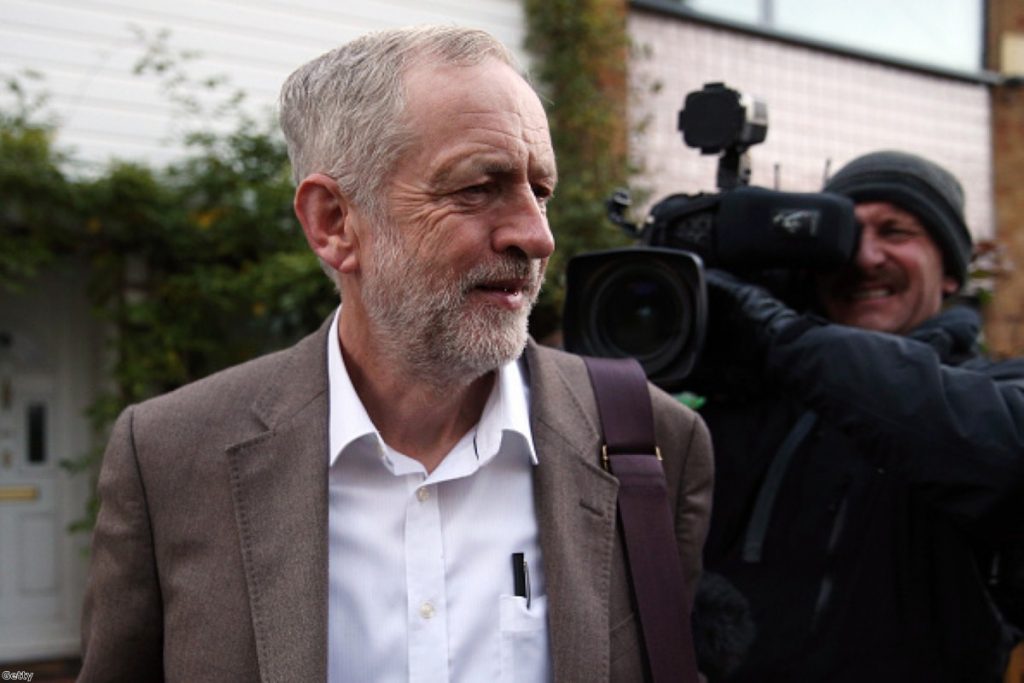Another Corbyn victory: Is Cameron now the underdog at PMQs?
Jeremy Corbyn won PMQs again, just like he did last week and the week before. That's a pretty strong winning streak. If he keeps this up, he'll be considered the default winner of PMQs and it'll be a shock when David Cameron comes out on top.
The key seems to be his intelligence and Cameron's relative weakness in debate. Corbyn started, really quite satisfyingly it has to be said, by again asking the same question he tried six times last week: could Cameron guarantee no-one facing tax credit cuts would be worse off? The prime minister was prepared this time. He cited income tax benchmarks and the so-called living wage, but his real response was effectively a game of chicken. He accepted the Lords vote, said he and Osborne were reformulating their plans for three weeks' time and told Corbyn he could ask the question another five times if he liked, but he'd get the same answer.
In the end, Corbyn only asked it another two times. Once he cited a Cameron ally and invited him to at least answer it from him. Then – more dangerously, he cited a veteran of the first Iraq war and invited him to answer him. Both showed a certain canniness – a quick-footed understanding of how to formulate the question to prevent the prime minster dismissing it.
Then Corbyn moved onto the NHS and asked for a promise there'd be no winter crisis. Cameron avoided the question again and the same process was repeated.


The prime minister flailed all over the place. He resorted to reeling off related statistics, for instance on doctor numbers, which were strictly irrelevant to the question he was being asked. And he tried to fall back on his broader criticism of Labour, in the same manner that a man might slump on an old sofa after jumping over a barbed wire fence. Corbyn had stuffed his team with Stalinists and Trotskyists, Cameron said. He won "full Marx" (no, the joke didn't work spoken out loud, one wonders why anyone would think it would). He supported "crazy socialist" countries who cut their health services.
It was not a good look. No matter how proud the prime minister was of his prepared jokes, they looked churlish and irresponsible next to specific questions about the functioning of the health service. It's not fair. PMQs is not the place for forensic questioning and it has a long tradition of getting the upper hand through laughter. But something about the chemistry between Corbyn and Cameron made the PM look complacent about elderly people's deaths. His jokes weren't funny or effective. Corbyn came out on top in an effortless way which made Tory MPs look uncomfortable.
You can see the shock on the Tory benches when this happens. Most sit in glum silence. A handful get so angry they genuinely seem to be doing themselves a physical disservice. When they cheer a Cameron joke and chant 'more' there is an unmistakeable trace of desperation to it. It is increasingly clear Corbyn is a better PMQs performer than the prime minister.
This really doesn't change that much. Cameron's attacks on Corbyn's Stalinist economics will be far more effective at election time than they were in the Commons today. His broader point on Labour's unelectability is a genuinely deadly thing.
The public don't watch PMQs. The only extent to which it matters is how it influences the journalists who do, but they are all – almost to a man – hostile to Corbyn and will continue to be whatever he does. Corbyn is not going to win the election through PMQs. His only real chance of winning involves a cataclysmic event – probably an economic crisis – which fundamentally shakes up the realities of British political life.
But for what it's worth, he is currently hands-down the better performer. And the reason for that is because he is simply more quick-witted than the prime minister. That shouldn't be surprising. Cameron has spent years avoiding scrutiny and his aloof, superior personality means he is rarely challenged away from the camera. Corbyn has been standing up for unpopular principles, almost alone, for decades. It would be odd if he wasn't a more accomplished performer.
That, right now, is exactly what he is: better at it. Cameron will need to improve quite dramatically to best him.












